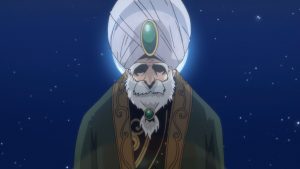 I’m glad I didn’t read the Shoukoku no Altair manga before I watched this series. It’s not that I disbelieve the manga readers when they say the anime cut out a lot of material, or even that the manga is better in many respects – they’re surely right on one score and most likely on the other. But this show is so damn good right now that I’m happy to be able to enjoy it with no mixed feelings whatsoever. Good anime about war and politics (rare as they are) are almost always underappreciated in their own time anyway. The only real conflict for me is whether to start the manga from the beginning when the anime ends, or pick up where it left off.
I’m glad I didn’t read the Shoukoku no Altair manga before I watched this series. It’s not that I disbelieve the manga readers when they say the anime cut out a lot of material, or even that the manga is better in many respects – they’re surely right on one score and most likely on the other. But this show is so damn good right now that I’m happy to be able to enjoy it with no mixed feelings whatsoever. Good anime about war and politics (rare as they are) are almost always underappreciated in their own time anyway. The only real conflict for me is whether to start the manga from the beginning when the anime ends, or pick up where it left off.
 There are so many especially strong moments in this episode that it’s hard to single out specific ones, but a few do stand out in an episode that was pretty much combat, start to finish. This is not glamorous Hollywood combat either, but grim and messy stuff – there are a few people who look happy about it (like the batshit mayoral twins) but there’s a strong sense that they’re crazy to feel that way. The sensible folks on both sides are pretty somber about the whole thing – though mostly for different reasons of course.
There are so many especially strong moments in this episode that it’s hard to single out specific ones, but a few do stand out in an episode that was pretty much combat, start to finish. This is not glamorous Hollywood combat either, but grim and messy stuff – there are a few people who look happy about it (like the batshit mayoral twins) but there’s a strong sense that they’re crazy to feel that way. The sensible folks on both sides are pretty somber about the whole thing – though mostly for different reasons of course.
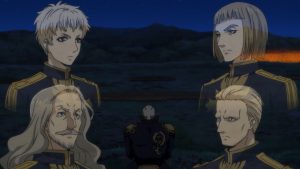 “Sometimes a defeat makes an enemy stronger.” Pino is certainly right about this, both in the abstract and the material – replacing the old and predictable Halil with the young and daring Mahmut has made the Turkiye army stronger (though Mahmut’s youth may yet come back to bite him). Mahmut has laid his trap well – he’s prepared the literal ground beneath his feet for maximum advantage, and the care he’s taken in choosing the time and place of battle is evident. From the moment his forces initiate combat with a rain of flaming arrows the Imperial army is on the defensive.
“Sometimes a defeat makes an enemy stronger.” Pino is certainly right about this, both in the abstract and the material – replacing the old and predictable Halil with the young and daring Mahmut has made the Turkiye army stronger (though Mahmut’s youth may yet come back to bite him). Mahmut has laid his trap well – he’s prepared the literal ground beneath his feet for maximum advantage, and the care he’s taken in choosing the time and place of battle is evident. From the moment his forces initiate combat with a rain of flaming arrows the Imperial army is on the defensive.
 In much the same way Lily Kokoschka used tactics to turn the strengths of Halil’s army into weaknesses, Mahmut has done so with the cumbersome Imperial forces. Trapping two divisions behind (and in) a dry moat, taking advantage of the combat weakness of the engineering division (though its commander, Barrett, survives) – piece by piece Mamhmut’s forces tear Pino’s apart, taking advantage of the gaps in formation caused when one division moves to take the place of another. What started as a battle quickly turns into a rout, and at Kokoschka’s advice Pino decides to flee the field and march to capture Espada – which Lily assumes will be poorly defended with its entire army under Mahmut’s command.
In much the same way Lily Kokoschka used tactics to turn the strengths of Halil’s army into weaknesses, Mahmut has done so with the cumbersome Imperial forces. Trapping two divisions behind (and in) a dry moat, taking advantage of the combat weakness of the engineering division (though its commander, Barrett, survives) – piece by piece Mamhmut’s forces tear Pino’s apart, taking advantage of the gaps in formation caused when one division moves to take the place of another. What started as a battle quickly turns into a rout, and at Kokoschka’s advice Pino decides to flee the field and march to capture Espada – which Lily assumes will be poorly defended with its entire army under Mahmut’s command.
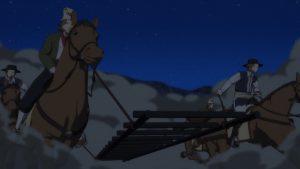 Pino’s line about defeats making enemies stronger is a good one, but the most memorable of the episode comes from Mahmut, speaking about what transpires here: “I’ve come to peace with it.” One wonders if that’s really true – can a boy who survived the genocide of his people to dedicate his life to preventing war really be at peace knowing his brilliance has led to the deaths of tens of thousands of people? It’s not as if he had any choice – this story is fictional, but there’s no question that Balt-Rhein have been the aggressors here. And as they flee through the woods towards Espada, the Turkiye army growing ever-closer, they reap the bitter rewards from the nature of their aggression – the local people they’ve stolen from and murdered are only too pleased to try pay the Imperials back a few pennies on the dollar.
Pino’s line about defeats making enemies stronger is a good one, but the most memorable of the episode comes from Mahmut, speaking about what transpires here: “I’ve come to peace with it.” One wonders if that’s really true – can a boy who survived the genocide of his people to dedicate his life to preventing war really be at peace knowing his brilliance has led to the deaths of tens of thousands of people? It’s not as if he had any choice – this story is fictional, but there’s no question that Balt-Rhein have been the aggressors here. And as they flee through the woods towards Espada, the Turkiye army growing ever-closer, they reap the bitter rewards from the nature of their aggression – the local people they’ve stolen from and murdered are only too pleased to try pay the Imperials back a few pennies on the dollar.
 This seems very likely to end in victory for Mahmut, with Pino trapped between his pursuing army and the Espada castle walls (defended by a mercenary army called the Lince, paid for by Cuore). Mahmut offers Pino the chance to surrender, because he’s Mahmut – I suspect he knows Pino will never accept it. But this doesn’t feel like much of a victory, seeing a cold-eyed Mahmut at the head of a forest of heads on spikes. He’s given up so much to reach this point, necessary though it may have been, that it feels like Mahmut’s finest moment is also his most tragic.
This seems very likely to end in victory for Mahmut, with Pino trapped between his pursuing army and the Espada castle walls (defended by a mercenary army called the Lince, paid for by Cuore). Mahmut offers Pino the chance to surrender, because he’s Mahmut – I suspect he knows Pino will never accept it. But this doesn’t feel like much of a victory, seeing a cold-eyed Mahmut at the head of a forest of heads on spikes. He’s given up so much to reach this point, necessary though it may have been, that it feels like Mahmut’s finest moment is also his most tragic.


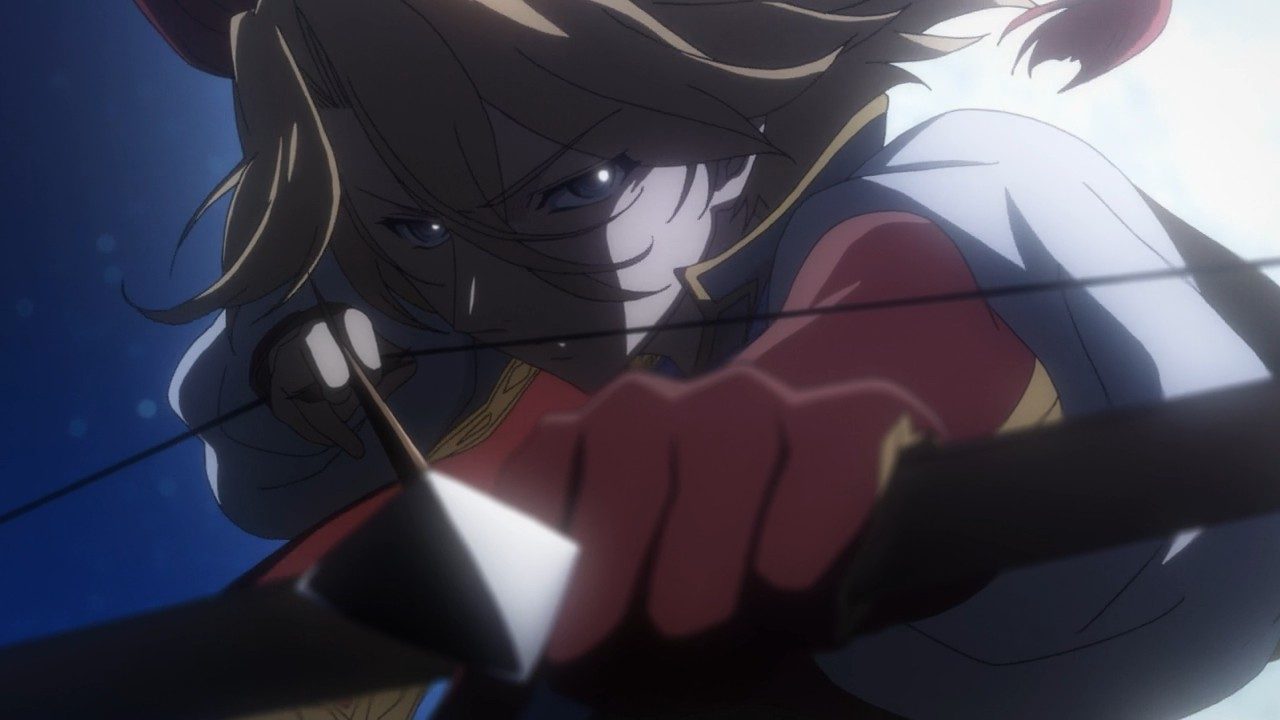
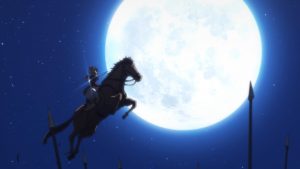
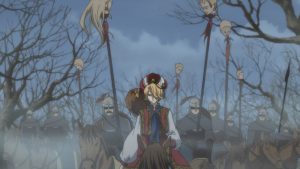
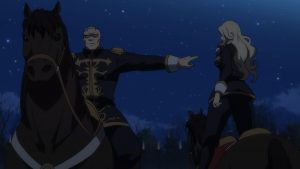
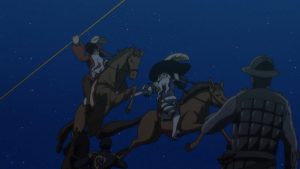
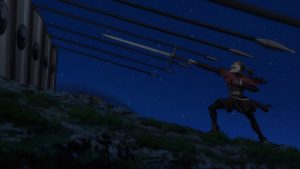
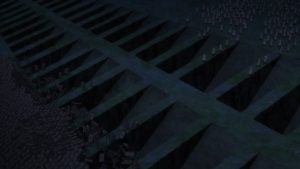
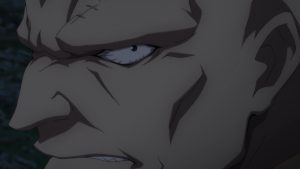
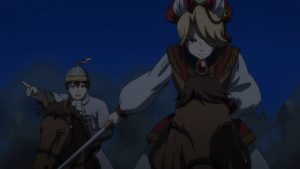
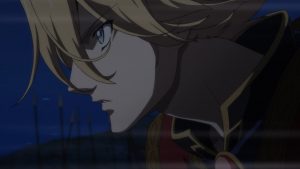
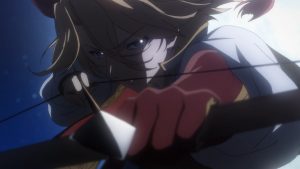
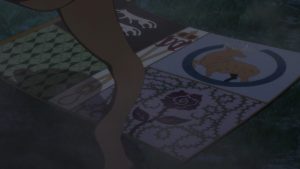



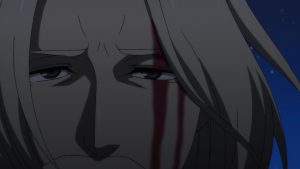
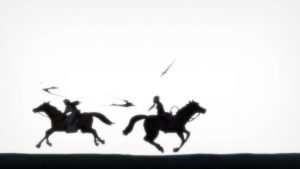
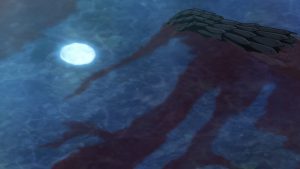
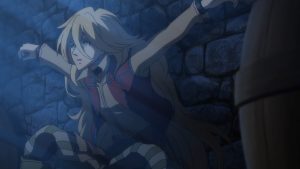
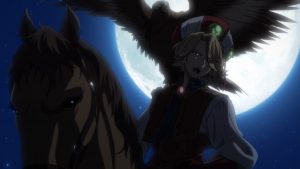
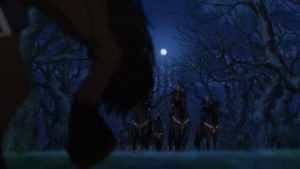

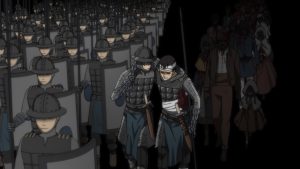

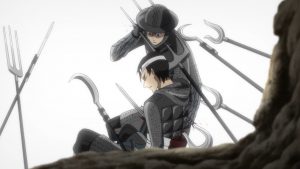

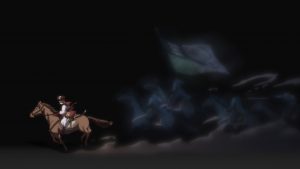
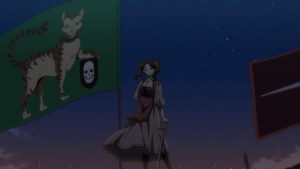
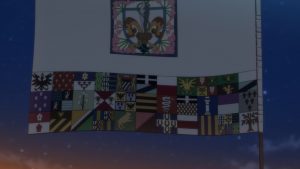
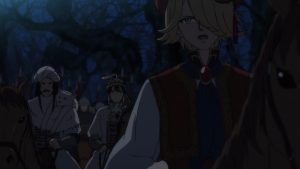

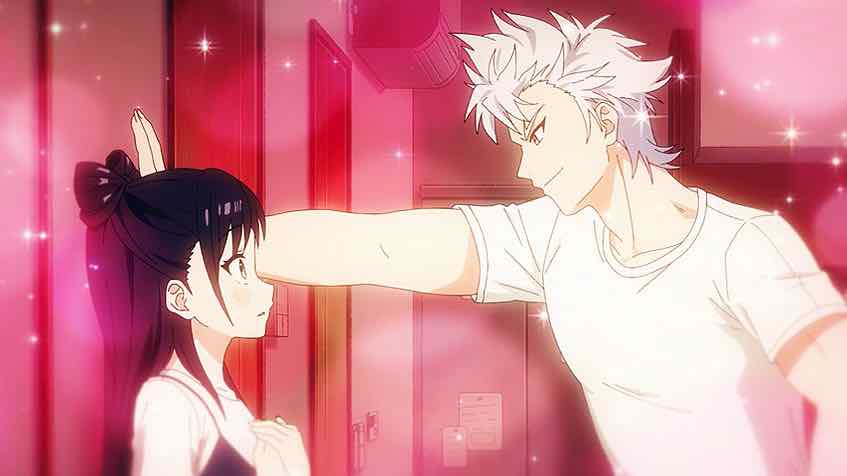
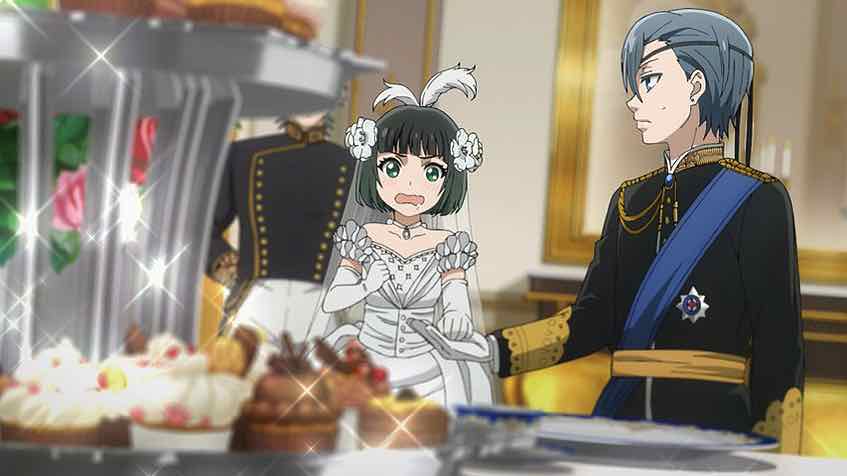
DP
December 9, 2017 at 8:43 amPersonally, I find the character writing in this show to be really weak, with everyone, including Mahmut, sporting the complexity of a #2 pencil.
Each character has a couple of “defining” traits, and that’s about it. There’s not a bit of nuance to anyone, with Mahmut’s emergence as a more pragmatic, but ultimately brilliant soldier for peace utterly predictable and therefore pretty uninteresting. And yeah, I can see where they must have cut out huge chunks of narrative from the manga, because the breakneck pace of these last few episodes is doing the storytelling no favors. And turning Mahmout into William Tecumseh Sherman isn’t exactly clever.
It’s not the worst show by any means, but I would take Arslan any day of the week over this show. Arslan, for all its own faults (some of which were similar), was pretty effective in making the point that kindness and generosity of spirit was important to winning the real war, for people’s hearts and minds.
Altair is just leaning hard into the hoary old trope about innocent, idealistic boys growing into practical and more cynical men. I much prefer the idealistic worldview of Arslan.
Guardian Enzo
December 9, 2017 at 8:49 amArslan is fun, as a hybrid of quasi-realistic Franken-history and fantasy, but it has way too many anime tropes for my taste. When it comes to the war and politics, I much prefer Altair. As to the main character arcs themselves, I like them both about equally.
landofthekwt
December 9, 2017 at 11:27 amOne of the problems I have with Altair is that the mangaka has not finished the last volume Any ending other than TBC will an original ending. The Empire is made up of conquered states and most of its warriors are persons forced to fight for it. Louis has used them as throw away pieces that he does not care about if he loses them. In the end it will come to be the Empire’s greatest weakness
Snowball
December 10, 2017 at 3:16 amWith regards to your conflict, Enzo, I recommend you read the manga from the beginning, when you have time. There are just so many things to appreciate from this series: the artwork, the well researched and incorporated history and politics. I also think it is beneficial if you pick up some of the materials that the anime has omitted, too.